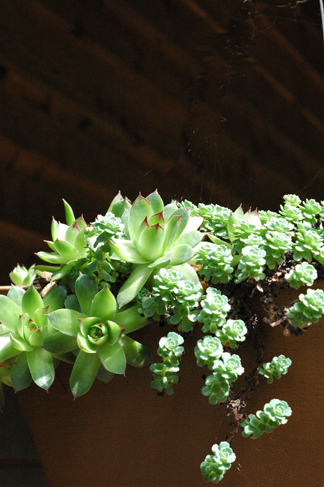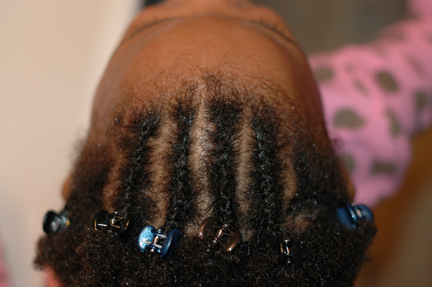
No! Not this cute girl.
So let’s say there’s this toddler, a sweet little thing with braids held in place with multi-colored flower clips, who walks up to her little friend at preschool, grabs her by the collar and pushes her to the floor. No words are exchanged; there is no fight over a toy, just bam. Smack-down.
Then let’s say, a day later, the mother and daughter make a cake. The toddler is standing on a chair and while they’re holding the beater, this same toddler slips her arm around her mother’s waist, looks up and says “I wuv you Mommy.” Sweet as pie.
Yes, this child is two-and-a-half. Yes, she is a force of nature. Her mother knows these things, but she still can’t help but wonder what causes her sweet child with the braids and flowered clips and all to decide she’s a WWF wrestling super-star. Was she tired? Coming down with the flu? Had she eaten something that didn’t agree with her, had she had too much sugar, too little sugar, too much exercise or not enough exercise, too much time with other toddlers, not enough, too many hunks of cheese, raisins, granola bars or things that stick in her teeth or don’t, she must need more things that stick in her teeth or maybe it’s that new toothpaste with the fluoride or the fact that she isn’t flossing or or or… Picture this mother holding out the ends of her hair going “ACK!” like Andy Samberg playing Cathy from the comic strip on Saturday Night Live. Sweat drops, sweat drops, sweat drops.
Let’s just say this mother is always looking for causes, triggers, patterns, consequences. She knows sometimes she takes the speculation too far, but she also knows what she puts in her child does affect her child’s behavior.
The big health news this week is about a study published in the Journal of Pediatrics that shows kids with above average amounts of organophosphate pesticides in their urine are twice as likely to be diagnosed with ADHD.
“Detectable levels of pesticides are present in a large number of fruits and vegetables sold in the U.S., according to a 2008 report from the U.S. Department of Agriculture cited in the study. In a representative sample of produce tested by the agency, 28 percent of frozen blueberries, 20 percent of celery, and 25 percent of strawberries contained traces of one type of organophosphate. Other types of organophosphates were found in 27 percent of green beans, 17 percent of peaches, and 8 percent of broccoli.”
Another reason to buy organic produce. All this stuff that goes into this mother’s body and this child’s body… It does matter.
Turns out this particular toddler had a virus and two canker sores in the back of her mouth. As far as her mother can tell, her WWF-style take down had nothing to do with organophosphates and everything to do with being miserable. But this mother can never be too sure.

I can't keep my lips off those cheeks!

















